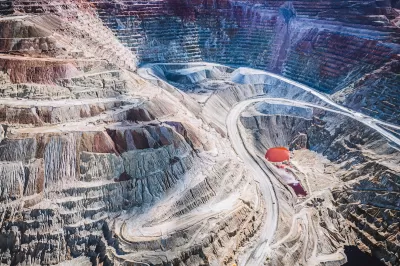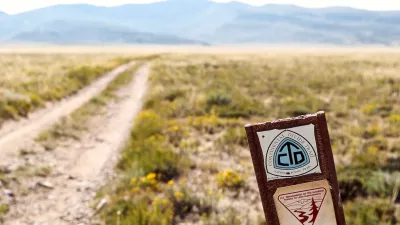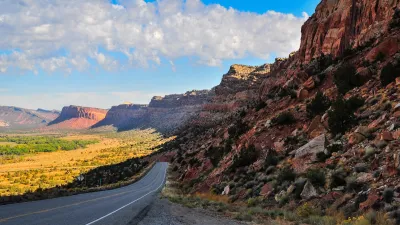A federal bill could give mining companies more leeway than ever before.

In an opinion piece in Albuquerque Journal, Ralph Vigil and Paula Garcia argue against a proposed federal bill that would allow more mining in Western states.
According to the authors, “This would have devastating consequences across the West and especially for New Mexico, where the Questa mine in Taos County poisoned the Red River, spewed toxic waste into acequias and became a Superfund site costing taxpayers an estimated $1 billion to clean up.”
The authors write that the Mining Regulatory Clarity Act would make conditions worse by lifting a key protection that requires proof of underground minerals to establish mining rights. “The consequences would be disastrous, locking up land held in trust for all of us and putting recreation, wildlife habitat, sacred sites, scenic landscapes, forests and even renewable energy projects at risk.”
A better alternative, the authors note, is the competing Clean Energy Minerals Reform Act, which “ would, for the first time, require companies to pay the American public for the minerals they extract from our public lands. It would set aside funds for mine cleanup and give local communities and Tribes more say in determining where mining should and should not take place.”
FULL STORY: OPINION: Federal mining bill would threaten acequias, wildlife and public lands

Planetizen Federal Action Tracker
A weekly monitor of how Trump’s orders and actions are impacting planners and planning in America.

Restaurant Patios Were a Pandemic Win — Why Were They so Hard to Keep?
Social distancing requirements and changes in travel patterns prompted cities to pilot new uses for street and sidewalk space. Then it got complicated.

Map: Where Senate Republicans Want to Sell Your Public Lands
For public land advocates, the Senate Republicans’ proposal to sell millions of acres of public land in the West is “the biggest fight of their careers.”

Orange County, Florida Adopts Largest US “Sprawl Repair” Code
The ‘Orange Code’ seeks to rectify decades of sprawl-inducing, car-oriented development.

Maui's Vacation Rental Debate Turns Ugly
Verbal attacks, misinformation campaigns and fistfights plague a high-stakes debate to convert thousands of vacation rentals into long-term housing.

San Francisco Suspends Traffic Calming Amidst Record Deaths
Citing “a challenging fiscal landscape,” the city will cease the program on the heels of 42 traffic deaths, including 24 pedestrians.
Urban Design for Planners 1: Software Tools
This six-course series explores essential urban design concepts using open source software and equips planners with the tools they need to participate fully in the urban design process.
Planning for Universal Design
Learn the tools for implementing Universal Design in planning regulations.
Heyer Gruel & Associates PA
JM Goldson LLC
Custer County Colorado
City of Camden Redevelopment Agency
City of Astoria
Transportation Research & Education Center (TREC) at Portland State University
Camden Redevelopment Agency
City of Claremont
Municipality of Princeton (NJ)





























